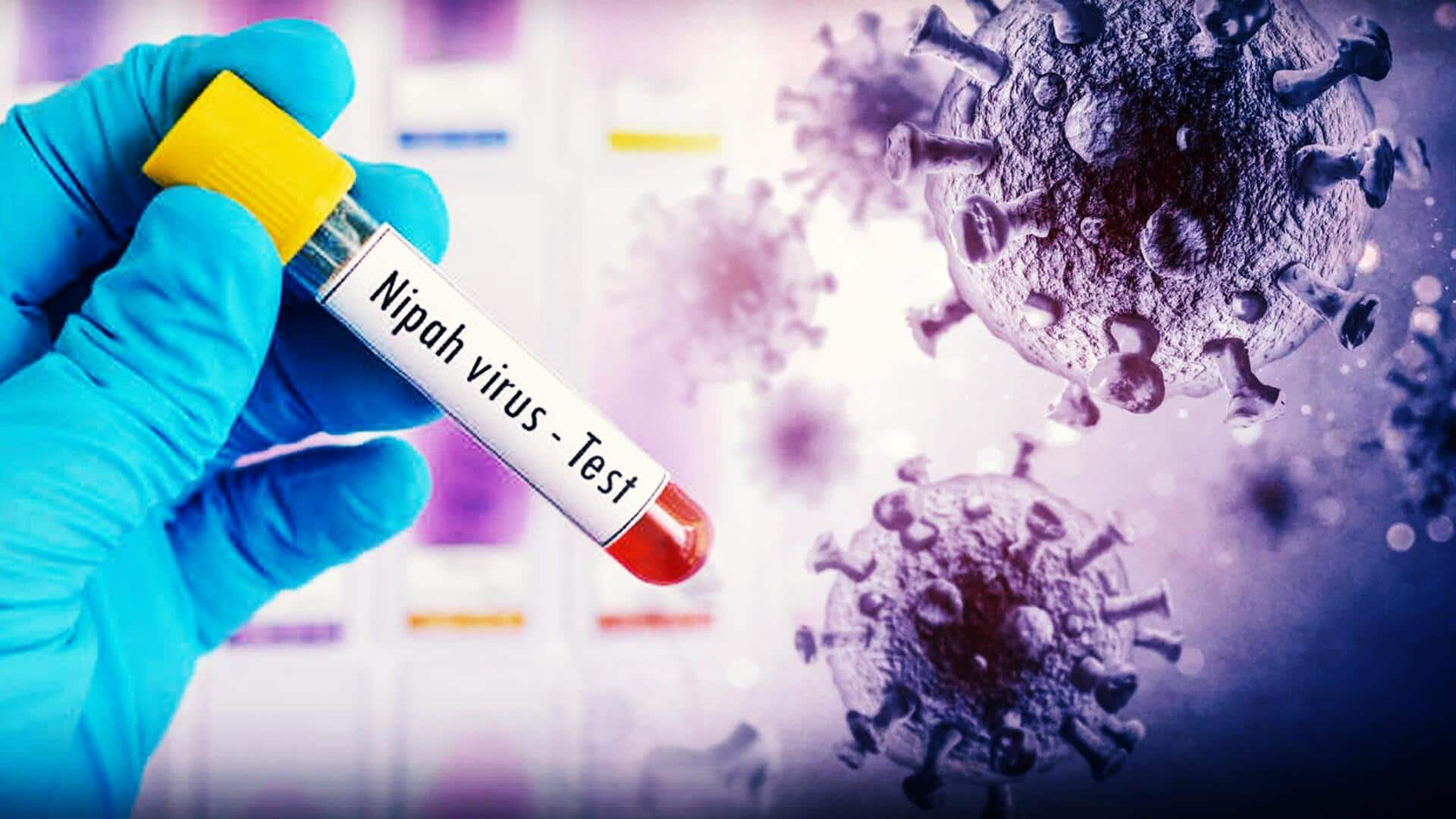
Kerala on alert after teenager dies from Nipah virus
What's the story
The southern Indian state of Kerala is on high alert after the death of a 14-year-old boy due to the Nipah virus on Sunday.
The boy—who was receiving ventilator support at a hospital in Malappuram—suffered a heart attack and died despite medical intervention, State Health Minister Veena George said.
The National Institute of Virology, Pune confirmed the boy's infection with this deadly virus, classified as a "priority pathogen" by the World Health Organization for its epidemic potential.
Virus details
What the symptoms of Nipah are
The Nipah virus is a zoonotic pathogen, meaning it can be transmitted from animals to humans. Pigs and fruit bats are known carriers of this lethal virus.
It causes a severe brain-swelling fever with an incubation period ranging from four to 14 days.
Symptoms include intense fever, vomiting, respiratory infection, and in severe cases, brain inflammation and seizures leading to coma.
Government action
Kerala government's response to Nipah virus outbreak
In response to the recent death, the Kerala government has formed 25 committees for identifying and isolating any affected people.
"Contact tracing has begun. High-risk contacts have been isolated and their samples have been sent for testing," Health Minister George added.
A total of 246 people are on the Nipah contact list in Malappuram, with 63 of them categorized as "high-risk."
The Union Health Ministry has advised implementing four immediate public health measures to manage the outbreak.
Containment measures
Public health measures in place
These include active case search within the family of the confirmed case and similar topography areas, active contact tracing over the past 12 days, strict quarantine of contacts and isolation of any suspects, and collection and transportation of samples for lab testing.
A multi-member joint outbreak response team from the National 'One Health Mission' will be deployed to assist in managing this outbreak.
Safety measures
Precautions and restrictions imposed
Authorities have urged people in the suspected epicenter to wear masks as a precaution and avoid hospitals.
They have also warned against eating fruits that are half-eaten or bitten by birds or animals.
"A three-km radius from the epicenter of Pandikkad locality will be strictly observed and restrictions will be imposed," said Health Minister George.
Reports further said, the boy's funeral will be conducted in compliance with international protocol around virus outbreaks, with formalities being discussed with his family.